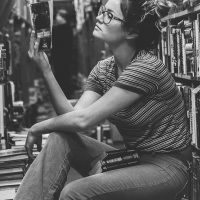Former President Obama gave a commencement speech via twitter on Saturday morning for the graduating senior class of 2020.
From his home living room, he spoke of the grievances in losing a few hallmark moments of early adulthood, such as prom and graduation, the lack of leadership during the pandemic, and he gave a lighthearted remark that “if the world is going to get better, it’s going to be up to you.” He also gave three pieces of advice to guide the future world leaders in their transition into adulthood.
His first words of were wisdom: “Don’t be afraid.” He comforted the public in a few quick statements by acknowledging similarly devastating periods in time, which we as a nation survived and persevered. We’ve done it before, we can do it again.
His second heeding: “Do what you think is right.” Here, Obama mentions that even people with “fancy jobs and important titles” still take the convenient route rather than the right one. Wonder who he’s talking about?
And lastly,
“Build a community. No one does big things by themselves. Right now, when people are scared, it’s easy to be cynical and say ‘let me just look out for myself, or my family, or people who look or think or pray like me’…be alive to one another’s struggles. Stand up for one another’s rights. Leave behind all the old ways of thinking that divide us — sexism, racial prejudice, status, greed — and set the world on a different path.”
Do I even have to say it? Okay, here it is: Wow. Those were some wise words, indeed, and ones that I particularly needed to hear. As I listened to Obama close out his speech, I began thinking on the word “community” and what it means to me.
In broad terms, my community is the United States and I am American. Overseas, this is the community I reach for—who understand my loud and lively tone, jokes about my home state Florida, and my love for Target. They are the comfort in a foreign city that I miss dearly.
Narrowing it down, my community might be the people I interact with on a daily basis around the neighborhood. It’s the barista at Starbucks who remembers my order and writes my name correctly. It’s the bagger at the grocery store who asks how I’m doing today. It’s the mailman, the next door neighbor, and the kids playing in the street who smile and wave.
They surround me and fill me with a warmth that reminds me we mutually care and think of one another kindly. Just from their presence in the day-to-day, I know I’m never alone.
But community shrinks even smaller—down to the group of people in our lives who we go to with the big stuff and little stuff. Our community looks after our needs—they ask us how our interview went, whether we’re feeling better, or if they should bring over soup.
Our community cares about our mental and emotional well-being. They offer advice on a tough relationship call, or ask if we need to vent after a rough day. Our community offers help without us having to ask—whether it’s with moving or getting to the gym. Our community shares mutual passions, such as film or wine, and pursues them with us, organizing a group cooking class, or setting up a book club meeting.
Our community is there for us, and they come in many forms—but, at the base is one true theme: love. Our community contains companionship, kindness, generosity, loyalty, and above all, love.
So what happens when we don’t have a community? Speaking from personal experience, we may feel isolated or lacking support. We have no one to share experiences or our daily struggles with, and that can feel lonely. As someone who has moved twice, and has had to build a new community from the ground up, I have a few pointers for those going through the same, difficult transition.
Tips for building your community:
1. Form a group.
Whether this is joining your city’s writing community or going to church, it’s important to find a community that has similar interests and hobbies as you do. Google is your friend here. Community centers are also a great source of information in this key step to building your community.
Once you’ve made the first step in placing yourself an environment where these kinds of connections can be made, the rest is history. You will feel it in your soul when you begin the course of friendship over shared passions in a way that you didn’t before. There is nothing quite like feeling alone in something, and hearing someone else say, “me, too!”
2. Say yes more often.
Once you start meeting people, it’s crucial to break out of your comfort zone and open yourself up to new experiences with your peers. If someone from your book club asks you to go out for happy hour, tell them you’d love to. If you get an offer to see the new drama in theaters, grab your movie purse and go.
It can feel awkward hanging out with someone for the first time and being unsure of whether you’ll hit it off and have endless topics to discuss, or whether you’ll find you don’t agree on much at all, and end up eating your popcorn in silence.
These outings are more than just friend dates—they build self-confidence and courage. And whether it works out or not, you’ll feel better equipped when the second go-round arrives.
3. Check in with yourself.
It’s not unheard of to find yourself in a community you don’t feel mentally or emotionally aligned with. You may find yourself leaving your community feeling worse than you did before seeing them. This is okay, and it isn’t your fault. It’s actually a good thing that you are realizing these feelings of unease and discomfort, because now you can do something to change them.
When I start feeling low around my community, I ask myself a few questions:
1. What is it that is making me feel down and what steps can I take toward either stopping this or not becoming affected by it?
2. Are the people in my community helping me grow, or starving me of my potential?
3. Am I too comfortable in my community and self-sabotaging myself with the fear of breaking out of this group I have established and trying something different?
Your community is too essential to your happiness to get stuck in a toxic one.
Living in Napa, California, with a retiree community of a median age of 50 (and especially isolated by this shelter-at-home period), I realized how important having a community truly is.
Our community lifts our spirits during the darkest of times, when we don’t remember how to do it ourselves. Having a few irreplaceable people who we can call on, or even just think of and know that we’ll at least have them, no matter what we’re going through, is a concept that seems so common sense, but sometimes more difficult to find than we may think.
Quality over quantity, always. This is why we hold our tight-knit community close to our hearts, and are held back equally in return.
~







Read 1 comment and reply